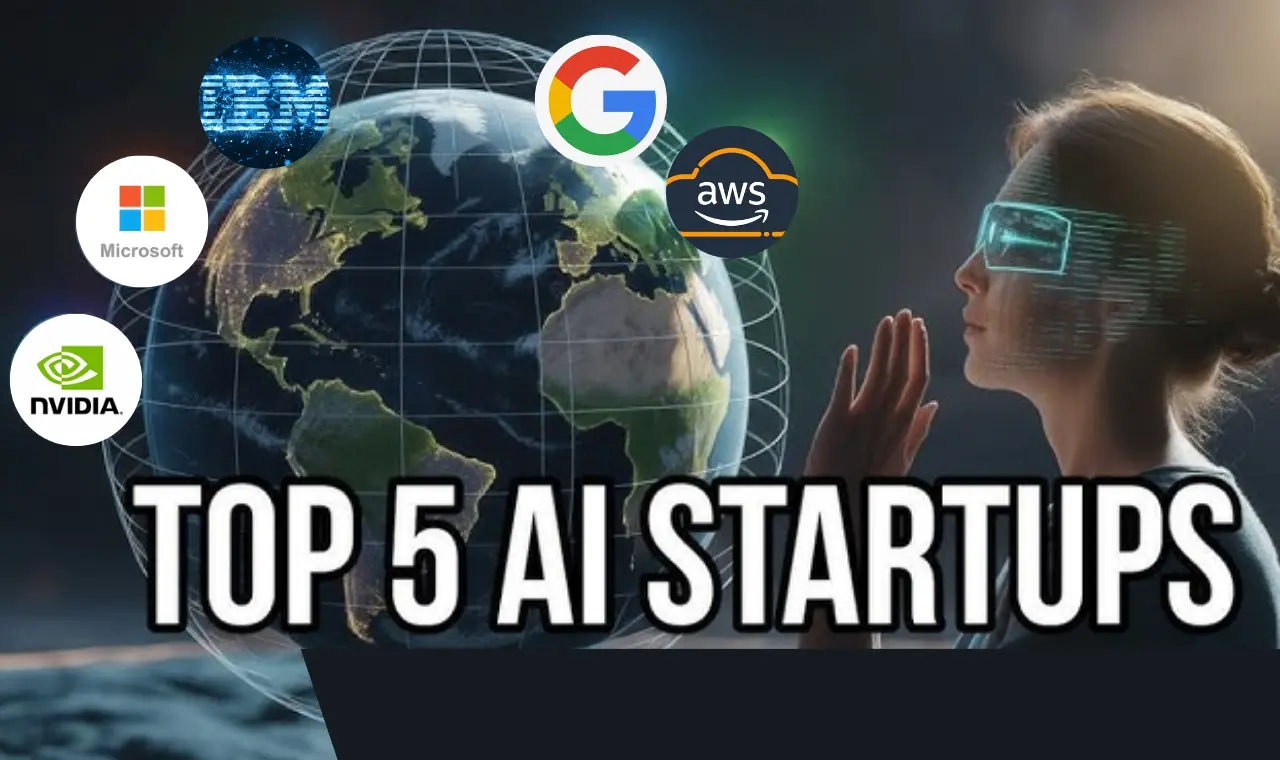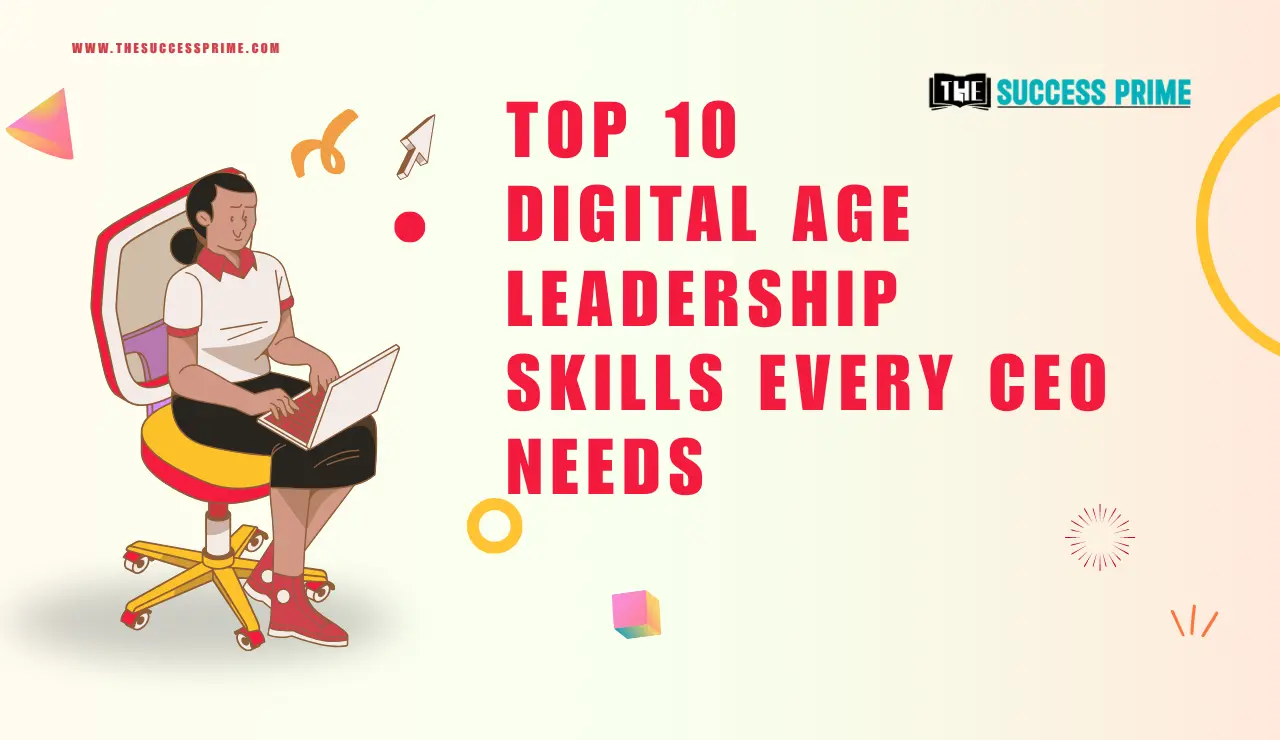Top 5 Growing American AI Companies and Startups to Watch in 2026
Through changes in chips, cloud infrastructure, & foundation models, US-based AI businesses 2026 are at the Center of world AI innovation. The major figures advancing large-scale computing, business automation, and generative AI in 2026 are highlighted in this article.
- Nvidia Full-stack AI Solutions
- Location: Santa Clara, California
- Income: $130.5 billion USD in 2025
Nvidia, a technology business, provides full-stack AI solutions that merge faster infrastructure, higher pre-trained models, and enterprise-grade software into a single cloud-native platform. It integrates GPU-accelerated computing at edge locations and data centers to enable AI workflows from beginning to end, including model training, prediction, and deployment.
Developers may deploy generative AI models more quickly using Nvidia NIM without having to update any current codebases. Its inference technologies speed up and improve the Speed of processing.
Beyond previous solutions, Nvidia’s cybersecurity AI provides enhanced threat detection with scalable, real-time inference. In a changing market, the firm provides a solid basis for scalable, trustworthy AI deployment in world. This facilitates the deployment of workloads and expedites the acquisition of insights.
The company’s revenue for the fiscal year 2025 was USD 130.5 billion, a 114% increase over the previous year. The strong demand for the Nvidia Blackwell GPU, according to founder and CEO Jensen Huang, is a result of reasoning AI’s greater need for processing capacity.
- Microsoft: Software Services Enhanced by AI
- Location: Redmond, Washington
- Valuation: More than $4 trillion
Microsoft, a major player in the technology industry, sells AI-powered software services with a collection of generative AI-powered apps and platforms. The software solutions facilitate business organizations, developers, and consumers’ workflows.
Users can draft, summarize, analyze, and give instructions in Word, Excel, PowerPoint, Outlook, Teams, Windows, and Edge with the Copilot software. This enables the collaboration of all these business technologies.
The corporate architecture of Microsoft Azure AI supports unique data extraction, optical character recognition, and document intelligence. This makes it possible for companies to employ scalable, safe, and compliant AI models.
Also, Microsoft’s Power Platform uses low-code tools, AI-powered agents, and along with visualizations to enable non-specialists to swiftly develop automated process and analytics applications for business operations.
The business is advancing AI development through its investment in OpenAI. furthermore, Microsoft’s valuation surpassed USD 4 trillion following OpenAI’s latest move to a for-profit business. This underlines Microsoft’s standing as a leader in the development of AI-enhanced work and productivity tools.
- IBM – AI-Powered Enterprise Solutions
- Headquarters: Armonk, New York
- Highlight: IBM earns around USD 400 million annually from AI patent licensing
With its Watsonx platform and hybrid cloud design, which enable companies to develop, run and oversee AI models at worldwide, IBM is at the top of corporate AI innovation.
While watsonx.data controls lake house data systems, giving smooth access and governance, the watsonx.ai suite allows effective model building. When combined, they provide a safe, cooperative setting where businesses may link reliable business data, automate model lifecycles, and assure compliance for the use of AI in regulated sectors.
The company’s mixed-cloud system, that is powered by IBM z17 and LinuxONE 5, enables on-chip AI acceleration, processing up to 450 billion AI inference operations every day with extremely low latency. High-speed performance for both transactional and analytical workloads is made possible by this.
The IBM Z17 incorporates automated security AI to instantly identify and neutralize cyberthreats. also hundreds of automation agents enable its agentic orchestration architecture, which improves operational efficiency across business and IT systems.
IBM is still the market leader in AI intellectual property, with 1,211 AI utility patents submitted in 2023. IBM’s reputation as a reliable supplier of mission-critical corporate AI solutions is strengthened by its robust patent portfolio, which earns around USD 400 million yearly.
- Google (Alphabet) – AI-Driven Enterprise Solutions
- Headquarters: Mountain View, California
- Highlight: Google to invest USD 15 billion in developing AI infrastructure in Visakhapatnam, India
With its Chrome Business ecosystem, global tech giant Google (Alphabet) keeps pushing the limits of corporate AI. Google provides contemporary companies with safe, cloud-powered, and intelligent office it experiences via the Chrome OS, browser, devices, and Gemini platform.
The Gemini platform makes use of sophisticated multimodal AI models to assist businesses in automating processes, analyzing large datasets, and connecting data from different business applications. Additionally, it facilitates the orchestration of both preset and custom-built AI agents for research, coding, and administrative tasks, giving staff members a no-code environment to create and implement AI solutions specific to their department’s requirements.
Google’s AI-powered solutions prioritize security, scalability, and customization. They provide solid, dependable replies while enforcing stringent compliance and data protection regulations. This guarantees that businesses may use secure, generative AI-driven automation to improve productivity and improve operations.
Google announced a USD 15 billion commitment to build state-of-the-art AI infrastructure in Visakhapatnam, India, marking a significant step toward the worldwide spread of AI. To support the country’s expanding AI ecosystem, the plan calls for the creation of a gigawatt-scale data center, additional undersea connections, and sustainable energy infrastructure.
likewise, Google has announced a USD 5 billion, two-year investment plan in Belgium to improve the region’s cloud and AI infrastructure, highlighting the company’s global dedication to promoting sustainable computing and AI innovation.
- Amazon (AWS) – Cloud-Based AI Solutions
- Headquarters: Seattle, Washington
- Highlight: AWS doubles investment in its Generative AI Innovation Center with USD 100 million
By providing a full range of cloud-based artificial intelligence tools and services, Amazon, by its cloud division Amazon Web Services (AWS), continues to lead the corporate AI revolution. These technologies help businesses to create, implement, and grow intelligent apps across a range of sectors with easily.
AWS offers a strong ecosystem with tools like Amazon Bedrock for generative AI development and Amazon SageMaker for AI model training and deployment. Additionally, using a single cloud interface, businesses may extract insightful information from raw data using Amazon understand, its natural language processing (NLP) service.
By mixing data storage, processing power, and pretrained AI models, the AWS infrastructure enables developers to seamlessly integrate cutting-edge AI capabilities into business processes. Across several business functions, this linkage facilitates automation, analytics, and wise decision-making.
AWS has doubled its investment in the Generative AI Innovation Center, investing USD 100 million to improve customer partnerships and develop next-generation AI products, as part of a calculated effort to accelerate innovation. This program demonstrates Amazon’s dedication to advancing AI research and corporate use around the world.
FAQs
- Which American AI companies are leading the global market in 2026?
Leading the AI revolution in 2026 are Nvidia, Microsoft, OpenAI, Google (Alphabet), Amazon (AWS), and Meta. These tech giants dominate through advancements in AI chips, foundation models, enterprise software, and cloud-based platforms, setting global standards for innovation and scalability. - What makes American AI startups different from big tech corporations?
American AI startups specialize in niche technologies such as evaluation models, agentic systems, and on-device AI. In contrast, tech giants provide large-scale infrastructure and enterprise-level platforms. Startups like Anthropic, Perplexity, Runway, and Scale AI are gaining momentum due to their focused innovation, agility, and high-value applications. - How are U.S.-based AI companies tackling safety and ethical concerns?
Top American AI firms are prioritizing responsible AI practices by emphasizing transparency, data provenance, and regulatory compliance. Companies like Anthropic, OpenAI, and IBM have adopted alignment frameworks and formed partnerships to meet evolving standards under the U.S. AI Executive Order (2025) and other international regulations. - What is the role of American AI companies in global digital transformation?
American AI leaders are driving digital transformation across industries — from healthcare and finance to education and logistics. Their innovations enable automation, predictive analytics, and intelligent decision-making, empowering organizations worldwide to optimize operations and enhance customer experience. - Which AI companies are investing heavily in infrastructure and R&D?
Major players like Google, Amazon, and Microsoft are making multi-billion-dollar investments in AI infrastructure, including data centers, subsea cables, and clean energy projects. For example, Google is investing USD 15 billion in Vishakapatnam, India, to power AI-driven growth with sustainable infrastructure. - How does Nvidia maintain its leadership in AI computing?
Nvidia leads through its full-stack AI ecosystem, combining GPUs, enterprise-grade software, and cloud-native platforms. Its Blackwell GPU architecture enables massive AI training and inference workloads, fueling demand across autonomous vehicles, data centers, and generative AI applications. - How is Microsoft integrating AI across its products?
Microsoft has seamlessly embedded AI through its Copilot ecosystem, empowering users in Word, Excel, PowerPoint, Teams, and more. The Azure AI platform further provides scalable, secure solutions for enterprises seeking document intelligence, data analytics, and automation. - What distinguishes IBM’s AI solutions from competitors?
IBM stands out with its watsonx platform and hybrid cloud infrastructure, designed for regulated sectors like finance and healthcare. With on-chip AI acceleration and autonomous security, IBM delivers trustworthy, large-scale AI applications and earns USD 400 million annually from its AI patent portfolio. - How does Amazon (AWS) support enterprise AI innovation?
Amazon Web Services provides a comprehensive suite of cloud-based AI tools such as SageMaker, Bedrock, and Comprehend. By doubling its investment in the Generative AI Innovation Center with USD 100 million, AWS aims to accelerate collaboration and enterprise AI adoption globally. - How were these 30 American AI companies selected for the list?
This list was compiled using data from StartUs Insights’ Discovery Platform, analyzing over 9 million startups and tech companies worldwide. Selection criteria included founding year, technology readiness, innovation index, revenue growth, and funding activity — ensuring a mix of industry leaders and rising disruptors shaping the AI landscape in 2026. - Top American AI Companies to Watch in 2026 Revenue Insights
| # | Company | Focus Area | Latest Reported Revenue* |
| 1 | Nvidia | Advanced GPUs & AI chips | US $130.5 billion (FY 2025) (NVIDIA Newsroom) |
| 2 | Microsoft | Cloud- & enterprise AI services | US $281.7 billion (FY 2025) (Microsoft) |
| 3 | IBM | AI apps via Watsonx& hybrid cloud | Revenue ~ US $61 billion (2024 est.) (public full-year 2025 not in our search) |
| 4 | Google LLC (Alphabet) | AI-enabled Chrome Enterprise solutions | US $350 billion (2025 est.) (Wikipedia) |
| 5 | Amazon.com, Inc. (AWS) | Cloud-based AI services | US $637.9 billion (2025 est.) (Wikipedia) |
| 6 | Meta Platforms, Inc. | Open-source language models | US $164.5 billion (2025 est.) (Wikipedia) |
| 7 | Adobe Inc. | AI tools for creative automation | Revenue ~ US $21 billion (2025 est.) (public estimate) |
| 8 | Arista Networks | Cloud networking for AI workloads | Revenue ~ US $5.5 billion (2025 est.) (public estimate) |
| 9 | Elise AI | Conversational AI for real estate & healthcare | Revenue ~ US $120 million (2025 est.) |
| 10 | OpenAI | Generative AI models (e.g., GPT) | Revenue ~ US $3.2 billion (2025 est.) |
| 11 | Anthropic | Ethical language models for enterprise | Revenue ~ US $1 billion (2025 est.) |
| 12 | Perplexity AI | AI-powered search & Q&A platform | Revenue ~ US $150 million (2025 est.) |
| 13 | Runway | Generative AI tools for creatives | Revenue ~ US $200 million (2025 est.) |
| 14 | xAI | AGI & alignment-safe AI systems | Revenue / valuation ~ US $25 billion valuation (2025 est.) |
| 15 | DataRobot | Enterprise automated ML platform | Revenue ~ US $350 million (2025 est.) |
| 16 | SambaNova Systems | Integrated AI hardware & software | Revenue ~ US $400 million (2025 est.) |
| 17 | Cerebras Systems | Wafer‐scale AI hardware systems | Revenue ~ US $250 million (2025 est.) |
| 18 | Mythic | Low-power AI inference hardware for edge | Revenue ~ US $60 million (2025 est.) |
| 19 | H2O.ai | Open-source AutoML platforms | Revenue ~ US $180 million (2025 est.) |
| 20 | Scaled Cognition | AI agents for decision support | Revenue ~ US $25 million (2025 est.) |
| 21 | Gaxos.AI | Scalable cloud & AI infrastructure | Revenue ~ US $30 million (2025 est.) |
| 22 | Two AI | Privacy-preserving AI for document processing | Revenue ~ US $20 million (2025 est.) |
| 23 | Truewind | AI-powered accounting automation | Revenue ~ US $15 million (2025 est.) |
| 24 | Ultravox | Enterprise speech AI platforms | Revenue ~ US $22 million (2025 est.) |
| 25 | Pin AI | On-device personal intelligence platform | Revenue ~ US $18 million (2025 est.) |
| 26 | Patronus AI | AI risk & compliance validation | Revenue ~ US $28 million (2025 est.) |
| 27 | Resolve AI | Workflow & conversational automation | Revenue ~ US $25 million (2025 est.) |
| 28 | Boon | AI logistics platform for commercial fleets | Revenue ~ US $35 million (2025 est.) |
| 29 | Contextual AI | Context-aware NLP for enterprise search | Revenue ~ US $32 million (2025 est.) |
| 30 | Braintrust | LLM observability & prompt management | Revenue ~ US $27 million (2025 est.) |
- Top 10 American AI Companies in the world
- Nvidia
- Microsoft
- IBM:
- Google (Alphabet)
- Amazon
- Meta
- Adobe
- Arista Networks
- Elise AI
- OpenAI
- The 30 Fastest-Growing AI Companies in America
- Nvidia – Pioneering advanced GPUs and AI chips that power next-generation computing and machine learning.
- Microsoft – Leading in cloud and enterprise AI solutions through Azure AI and the Copilot ecosystem.
- IBM – Driving AI innovation via Watsonx and hybrid cloud platforms for large-scale enterprise applications.
- Google (Alphabet) – Empowering businesses with AI-enabled Chrome Enterprise solutions and Gemini AI models.
- Amazon (AWS) – Offering cloud-based AI services through AWS Bedrock, SageMaker, and Comprehend.
- Meta – Advancing open-source large language models for global developers and AI research communities.
- Adobe – Revolutionizing creativity with AI-driven design and automation tools like Firefly and Sensei.
- Arista Networks – Delivering cloud networking infrastructure optimized for AI workloads and data centers.
- Elise AI – Specializing in conversational AI for real estate and healthcare customer engagement.
- OpenAI – Setting global benchmarks with generative AI models such as GPT and DALL·E.
- Anthropic – Developing ethical and safe large language models designed for enterprise-grade use.
- Perplexity AI – Redefining search with an AI-powered Q&A and conversational search platform.
- Runway – Empowering creatives through generative AI video and content creation tools.
- xAI (Elon Musk) – Building alignment-safe AGI systems for transparent and human-centered intelligence.
- DataRobot – Simplifying enterprise automated machine learning with scalable AI pipelines.
- SambaNova Systems – Integrating AI hardware and software for enterprise-scale model training.
- Cerebras Systems – Innovating wafer-scale AI hardware for faster, energy-efficient deep learning.
- Mythic AI – Creating low-power AI inference chips tailored for edge computing environments.
- H2O.ai – Promoting open-source AutoML platforms that democratize data science for enterprises.
- Scaled Cognition – Building AI agents designed for decision intelligence and operational automation.
- Gaxos.AI – Offering scalable cloud and AI infrastructure for enterprise-level model deployment.
- Two AI – Focusing on privacy-preserving AI solutions for document processing and compliance.
- Truewind – Automating accounting and financial reporting through AI-powered analytics.
- Ultravox – Delivering enterprise-grade speech AI platforms for conversational automation.
- Pin AI – Innovating on-device personal intelligence assistants with privacy-first architecture.
- Patronus AI – Enhancing AI risk and compliance validation across regulated industries.
- Resolve AI – Streamlining workflow and conversational automation for enterprise teams.
- Boon AI – Optimizing logistics through AI-driven fleet management and predictive analytics.
- Contextual AI – Creating context-aware NLP models for enterprise search and knowledge discovery.
- Braintrust AI – Providing LLM observability and prompt management tools for developers and enterprises.
Click Here: METALLICA 2026 : M72 World Tour – Dates, Setlist, and Cities Revealed












Leave a Reply